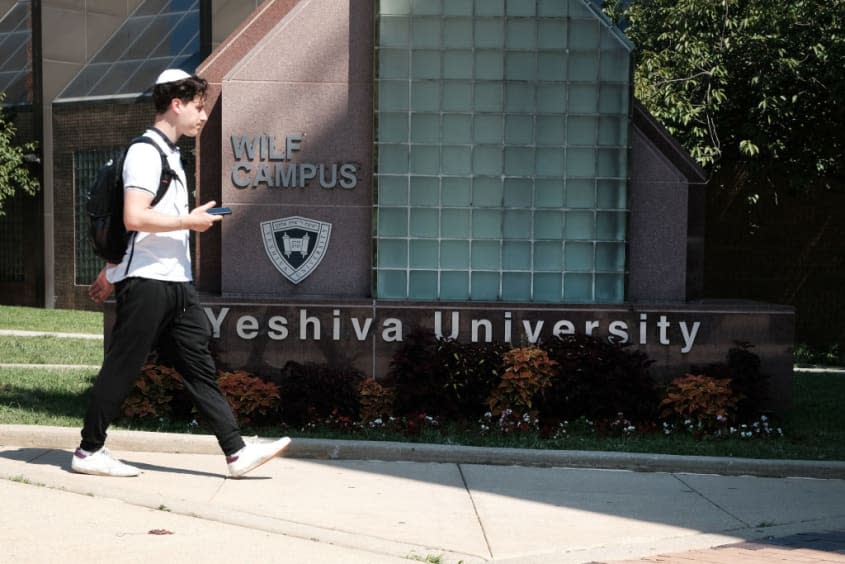Supreme Court rules Yeshiva University must accommodate LBGT group, for now

- Oops!Something went wrong.Please try again later.
- Oops!Something went wrong.Please try again later.
The Supreme Court on Wednesday voted 5-4 that Yeshiva University in New York City must recognize an LGBT student organization, Y.U. Pride Alliance, while it appeals a state court judge's ruling in proper order. Justice Sonia Sotomayor temporarily blocked the state court's order last week, giving the entire Supreme Court a chance to weigh in. Wednesday's ruling lifted that stay.
The unsigned majority opinion did not weigh in on the merits of the case but said Yeshiva, a Modern Orthodox university, has "at least two further avenues for expedited or interim state court relief," and if they "seek and receive neither expedited review nor interim relief from the New York courts, they may return to this court." The order reflected the views of Chief Justice John Roberts and Justices Sotomayor, Elena Kagan, Brett Kavanaugh, and Ketanji Brown Jackson.
The New York state trial judge, Justice Lynn Kotler, had sided with the Pride Alliance, ruling that since Yeshiva University had been incorporated as an educational institution, not a religious one, it must abide by New York City's nondiscrimination Human Rights Law. Yeshiva argued in its U.S. Supreme Court appeal that, "as a deeply religions Jewish university," it has a First Amendment right to preserve "its sincere religious beliefs about how to form its undergraduate students in Torah values."
The student group countered that Kotler's ruling "does not touch the university's well-established right to express to all students its sincerely held beliefs about Torah values and sexual orientation," but rather ensures that all students have "access to the non-religious resources it offers the entire student community." Yeshiva University doesn't require its staff or professors to be Jewish and enrolls students of all religious backgrounds, The Washington Post notes.
"All this case is about," the students told the Supreme Court, "is whether Y.U. has to allow the student club access to campus classrooms for meetings or bulletin boards."
Justice Samuel Alito disagreed, writing in his dissent that if the First Amendment means anything, "it prohibits a state from enforcing its own preferred interpretation of Holy Scripture," adding that "a state's imposition of its own mandatory interpretation of Scripture is a shocking development that calls out for review" and lamenting that "majority of this court refuses to provide relief." His dissent was joined by Justices Clarence Thomas, Neil Gorsuch, and Amy Coney Barrett.
You may also like
Jimmy Kimmel faces backlash over 'disrespectful' Emmys bit during Quinta Brunson's speech
Russian forces appear to be in disarray as Ukraine expands, consolidates lighting gains in Kharkiv

